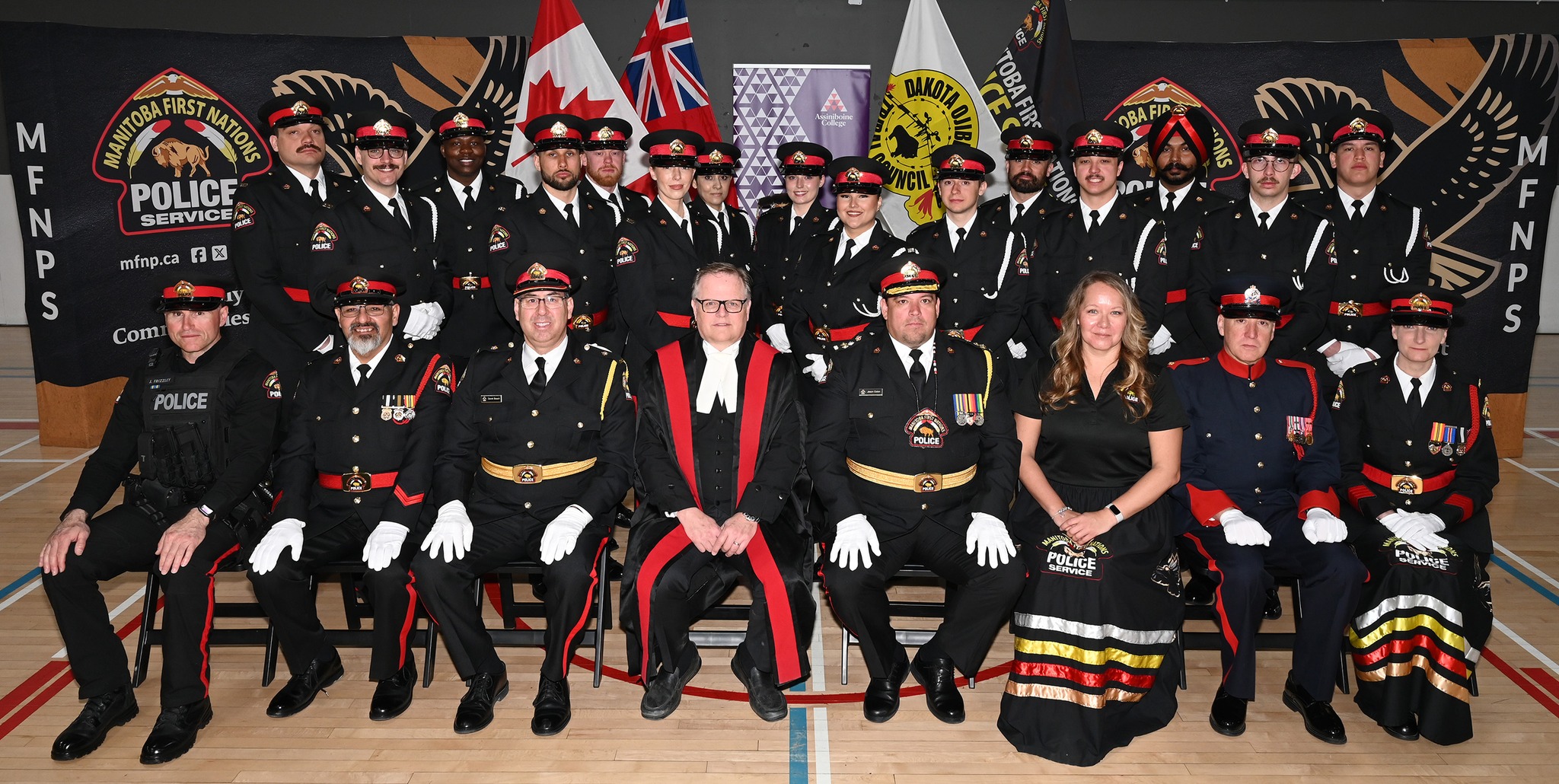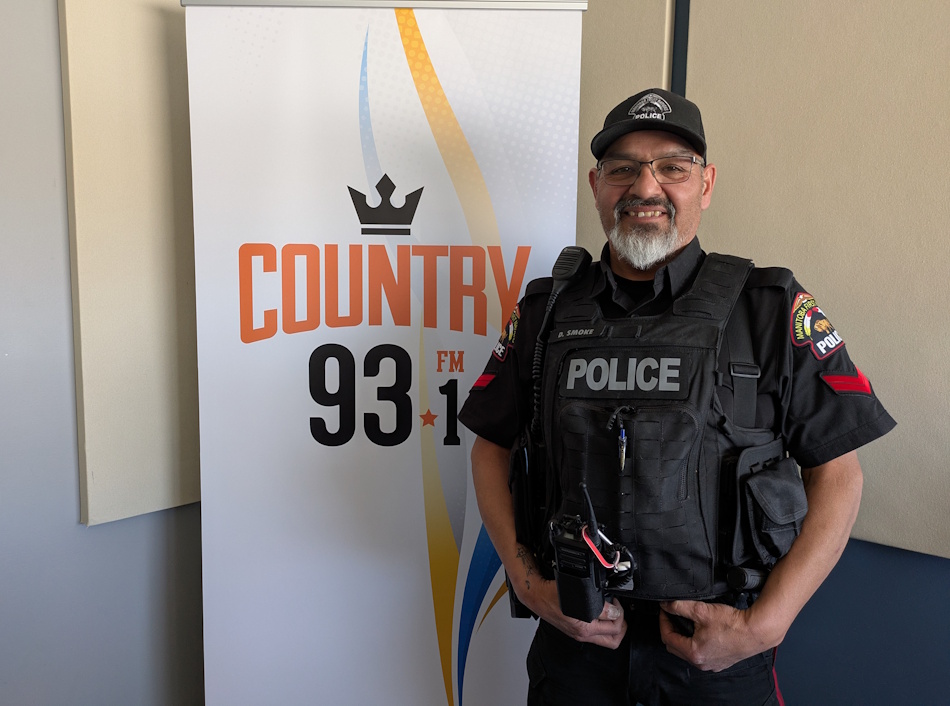The Manitoba First Nations Police Service (MFNPS) training program in Southport continues to build momentum. Its third class is now underway following the graduation of its first two cohorts in April 2024 and 2025.
As class coordinator and training leader, Corporal Derek Smoke says MFNPS has worked closely with Assiniboine College to develop a comprehensive program. The result is an intensive six-month course that condenses what was previously a ten-month training timeline.
"It's all your basic training. There are a lot of academics, such as learning the Criminal Code and the powers of arrest. We will also do the scenarios to get baselines of where everybody's at in the learning aspect of it," Smoke notes. "We also do driver training, firearms training, and the use of force, handcuffing techniques, and different types of restraining."
The transition to MFNPS conducting their own training marks a major step toward self-sufficiency, allowing the department to tailor the process to its own policing approach and values.
"We're still looking at other colleges and other police training programs [for recruits], but for this program, we're training all our members. Everybody who trains with us is hired by us once they're successful in completing the program," he adds.
Related stories:
- Community walk remembers the missing and murdered
- City Council approves new street to recognize trailblazing community leader
- Dakota First Nation reclaims heritage through historic treaty recognition
As the program grows, Smoke remains focused on ensuring recruits are trained in law enforcement but also grounded in the communities they will serve. A key curriculum component is cultural awareness training, including regular sessions with knowledge keepers from Indigenous communities.
“We’re trying to keep it more community-oriented. We're trying to make a product that is culturally aware and able to handle the hardships within the communities. One of the things that we do with our training is we bring in knowledge keepers from various communities, and they talk to the recruits.”
This emphasis is essential for officers who will be working in communities where the effects of historical trauma, poverty, and systemic challenges are part of daily life. Understanding these realities helps officers build trust, respond with empathy, and provide policing that respects the unique needs of Indigenous communities.
Despite the program's demands, interest continues to grow. The first class graduated 10 of 16 recruits. The second, which wrapped up in April, saw 15 of 22 complete the training. The newest cohort, now underway, includes 24 recruits.
“Over time, people learn this isn't for them, which is understandable. So, they pull themselves from the course, but we just began a third class this past Monday, and hopefully we can retain as many people as possible.”
Three local recruits were among the most recent graduates: Jaytey Towle and Brandon Rouire from Portage la Prairie and Renee Thunderbird-Sky from Sandy Bay First Nation proudly serve as MFNPS constables.

As recruits prepare to step into their roles, they are assigned to communities based on operational needs. Smoke says the training is designed to prepare them for the realities of front-line work, which often means dealing with people in crisis.
"Our biggest goal is to get them prepared to go out and deal with the general public. We don’t deal with people on their best days a lot of times, so we have to be able to be diverse in that area."
With another intake scheduled for October and the potential for a February class, MFNPS is staying focused on its mission to build strong, community-based officers who reflect and serve the people of Manitoba’s First Nations.
